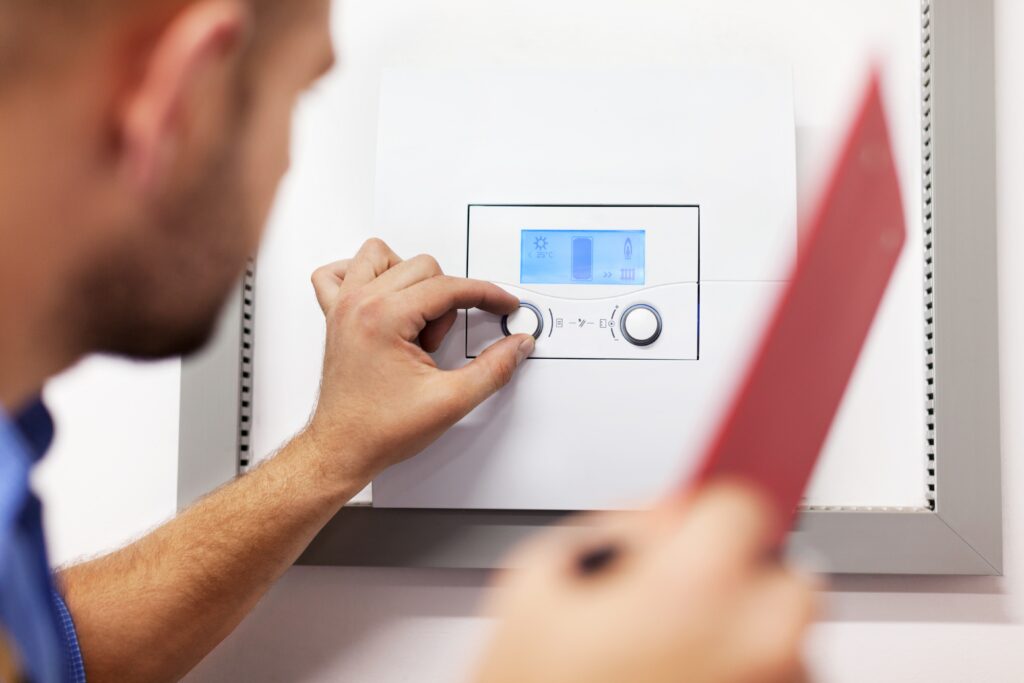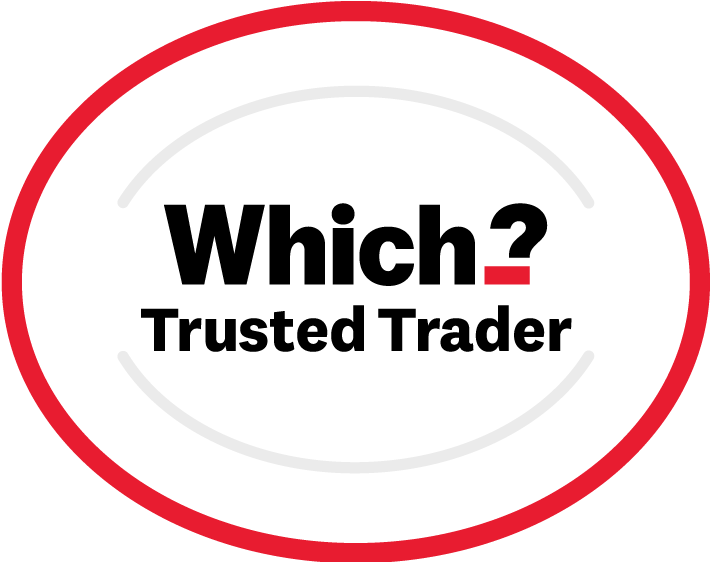What Is The Lifespan Of A Boiler?
Commercial boilers are vital for maintaining efficient heating in various businesses, from hotels to office buildings. Understanding the life expectancy of a commercial boiler can help businesses plan maintenance, budgeting, and eventual replacement. Here’s a comprehensive look into factors affecting the lifespan of commercial boilers, expected lifespan ranges, and tips for extending their useful life.
What are Commercial Boilers
Commercial boilers are designed to provide heating and hot water on a large scale, making them suitable for businesses and industrial applications. Unlike residential boilers, these systems are built to handle higher heating demands and operate more frequently. Choosing the right boiler involves considering factors like the size of the space, the type of fuel, and the required heat output.
Average Lifespan Of Commercial Boilers
- Typical Lifespan: The average lifespan of a well-maintained commercial boiler ranges between 15 to 25 years. However, this can vary significantly based on maintenance practices, boiler type, and the operating environment.
- High-Efficiency Models: Modern, high-efficiency boilers can last closer to the upper range of 20-25 years. They are designed to run more efficiently, reducing wear on components over time.
- Older Models: Traditional boilers may have a shorter lifespan, typically around 10-15 years, especially if maintenance is neglected.
Factors Affecting Boiler Lifespan
- Maintenance Quality: Routine maintenance, such as annual inspections, cleaning, and replacing worn-out parts, can greatly extend the life of a boiler.
- Operating Hours: Boilers in buildings that run 24/7 are subjected to more wear, which can reduce their lifespan. Lower operating hours can help extend the boiler’s life.
- Water Quality: Hard water can cause mineral buildup within the boiler, leading to scaling and corrosion. Using water treatment solutions can mitigate this risk.
- Installation Quality: Proper installation is crucial for the longevity of a boiler. Poor installation can cause issues such as leaks, improper heat distribution, and early component failure.
- Type of Fuel: Boilers powered by different fuels, such as natural gas, oil, or biomass, have different wear rates. Gas boilers, for instance, generally require less maintenance than oil boilers.
Signs That a Commercial Boiler May Be Nearing the End of Its Life
- Frequent Breakdowns: If a boiler is experiencing frequent issues despite regular maintenance, it may be reaching the end of its useful life.
- Decreased Efficiency: Older boilers tend to lose efficiency, leading to higher energy bills. A sudden increase in energy consumption could indicate that the boiler is struggling to maintain its performance.
- Unusual Noises: Strange noises, such as banging or rattling, can indicate internal problems like mineral buildup or failing components.
- Visible Corrosion or Rust: Corrosion around the boiler’s body or piping is a strong indicator that the system may need replacement soon.
- Increased Repair Costs: When the cost of repairs begins to approach the price of a new boiler, it’s more cost-effective to consider a replacement.
Extending the Life of Your Commercial Boiler
- Regular Maintenance Checks: Engage in annual maintenance checks with a qualified heating engineer to catch potential issues early.
- Upgrading Parts: Replacing components like pumps, seals, or control units before they fail can prevent bigger issues down the line.
- Water Treatment: Use water softeners or conditioners to reduce mineral buildup inside the boiler.
- Optimising Boiler Settings: Ensuring that the boiler operates within optimal temperature ranges and adjusting settings based on seasonal changes can reduce strain on the system.
How Often Should I Service My Commercial Boiler?
Regular servicing of a commercial boiler is crucial for maintaining its efficiency, safety, and longevity. It is recommended that a commercial boiler be serviced at least once a year. Annual servicing ensures that the system operates safely, preventing potential hazards like carbon monoxide leaks. During a service, a qualified heating engineer will inspect components, clean key parts, and address any wear or minor issues that could lead to breakdowns if left unchecked.
For businesses with higher heating demands or older boilers, it may be wise to schedule biannual check-ups to ensure optimal performance. Regular servicing not only extends the boiler’s lifespan but can also improve energy efficiency, reducing overall heating costs. Proper documentation of these services is essential for maintaining warranties and meeting insurance or regulatory requirements.
Cost of Replacing a Commercial Boiler
- Installation Costs: Replacing a commercial boiler can range depending on the size and complexity of the system. Factors like building size, boiler type, and fuel source play a significant role in the overall cost.
- Long-term Savings: While the initial cost of a new boiler can be high, newer models often offer improved efficiency, which can lower energy bills and provide savings over time.
- Financial Planning: For businesses, planning for boiler replacement is essential to avoid unexpected disruptions. Many companies offer financing options to spread the cost of new installations.
The Role of Proper Sizing in Boiler Longevity
- An incorrectly sized boiler can experience more stress, leading to faster wear. An oversized boiler may frequently cycle on and off, which increases strain. Conversely, an undersized boiler will work harder to meet heating demands, reducing its lifespan.
- Consulting with a professional during installation ensures that the boiler’s capacity matches the building’s needs, promoting both efficiency and longevity.
Comparing Different Commercial Boiler Types and Their Lifespan
- Condensing Boilers: Known for their high efficiency, condensing boilers typically have a lifespan of 15-20 years but require more attention to maintenance due to the condensation process.
- Standard Boilers: These may last up to 15 years but often come with lower initial costs.
- Biomass Boilers: Lifespans for biomass boilers can be around 20 years, but they require regular cleaning and maintenance of the fuel systems.
When to Consider Upgrading to a High-Efficiency Boiler
- If your existing boiler is over 15 years old, upgrading to a modern high-efficiency model can significantly reduce energy consumption.
- Newer boilers come with advanced controls and better heat exchange systems, ensuring better performance and a smaller carbon footprint.
- Government incentives and energy grants may be available to assist businesses in transitioning to more energy-efficient models.
Planning for the Future of Your Commercial Heating Needs
Understanding the life expectancy of a commercial boiler allows businesses to manage maintenance schedules and budget effectively for future replacements. With proper care and attention, commercial boilers can serve reliably for decades, providing essential heating and hot water to keep business operations running smoothly.
FAQs About the Lifespan of a Commercial Boiler
What is the lifespan of a commercial boiler?
The lifespan of a commercial boiler typically ranges from 15 to 25 years, depending on factors such as maintenance, water quality, and usage levels. Unlike domestic boilers, commercial systems are designed for higher demand and continuous operation, meaning they require more regular servicing to ensure longevity.
To maximise the boiler life expectancy, it’s crucial to conduct annual servicing, check for efficiency issues, and replace worn components before they cause system failures. Investing in a high-quality commercial boiler and maintaining it properly can significantly extend its average lifespan.
What is the average lifespan of a commercial boiler?
The average lifespan of a commercial boiler is typically between 15 and 25 years, though this can vary depending on factors such as usage, maintenance, and the specific type of boiler installed. Commercial boilers are built for heavy-duty operation, but those that experience high levels of demand, such as in hotels, manufacturing facilities, or office buildings, may wear out faster than those in lower-use environments.
Proper servicing plays a significant role in determining how long a boiler will last. Regular maintenance, including inspections and component replacements, can extend its operational life well beyond the lower end of the average range. Water quality is another crucial factor, as hard water can cause limescale buildup, leading to reduced efficiency and increased wear on the system. The way a boiler is used also influences its longevity; boilers that frequently operate at maximum capacity tend to wear out sooner than those running at optimal load levels.
While many commercial boilers can last up to 25 years, a lack of maintenance or poor installation can lead to early failure. Businesses that rely on their heating systems daily should monitor their boiler’s performance closely and invest in servicing to ensure they reach the upper end of their boiler average life expectancy.
What factors influence the lifespan of a commercial boiler?
Several key factors impact the lifespan of a commercial boiler, including:
- Maintenance schedule: Routine servicing is crucial for preventing wear and tear. A poorly maintained boiler will have a significantly reduced boiler life expectancy.
- Water quality: Hard water areas cause limescale buildup, reducing heat transfer efficiency and increasing strain on the system.
- Operating conditions: Boilers that operate continuously or at high temperatures experience greater stress, which can shorten the average life of a boiler.
- Installation quality: A professionally installed boiler will have fewer operational issues and last longer.
- Component wear and tear: Regularly replacing aging parts such as heat exchangers, pumps, and valves helps maintain efficiency and extends the boiler lifespan.
Ensuring proper maintenance and servicing helps maximise the boiler average life, reducing the risk of breakdowns and costly repairs.
How can I extend the average life of a commercial boiler?
Extending the average life of a commercial boiler requires a proactive approach to maintenance and system management. Regular servicing by a qualified professional is essential in identifying minor issues before they develop into costly failures. Annual inspections help ensure that key components, such as heat exchangers, pumps, and safety valves, are functioning correctly. Keeping the system clean is equally important, as debris buildup inside the pipes and radiators can force the boiler to work harder than necessary, reducing its lifespan.
Water quality management is another critical aspect of prolonging a boiler’s life expectancy. In areas with hard water, limescale accumulation can lead to overheating and inefficiency, making a water softener or chemical treatment a worthwhile investment. Maintaining the correct pressure levels also helps prevent undue strain on the system, preventing leaks or damage to internal components.
Timely part replacements and upgrades can also play a role in extending a commercial boiler’s lifespan. As boilers age, certain components may wear out faster than others, and replacing these parts before they fail can prevent unnecessary system breakdowns. Additionally, using high-quality replacement parts ensures the boiler continues to operate at peak efficiency.
A commercial boiler that receives regular servicing, operates under optimal conditions, and benefits from high-quality water treatment can remain efficient and reliable for well over two decades. By taking these steps, businesses can reduce repair costs, lower energy bills, and maximise the boiler’s average lifespan while avoiding unexpected downtime.
When should a commercial boiler be replaced based on its life expectancy?
While the lifespan of a commercial boiler can extend up to 25 years, signs of inefficiency or frequent breakdowns may indicate that a replacement is needed. A boiler’s average life expectancy depends on usage levels and maintenance history.
Signs that indicate a commercial boiler may need replacing include:
- Frequent repairs – If repair costs are becoming excessive, investing in a new boiler may be more cost-effective.
- Decreased efficiency – Rising energy bills and slower heating times suggest the boiler is no longer working at peak performance.
- Noisy operation – Banging, whistling, or rattling noises can signal internal wear and tear.
- Inconsistent heating – If parts of the building are not receiving adequate heat, it could mean the boiler is struggling to distribute heat evenly.
- Obsolete parts – Older boilers may have discontinued components, making repairs difficult or expensive.
While a well-maintained commercial boiler can last longer than the average life of a boiler, replacing an outdated system with a modern, high-efficiency model can improve performance and reduce running costs.






